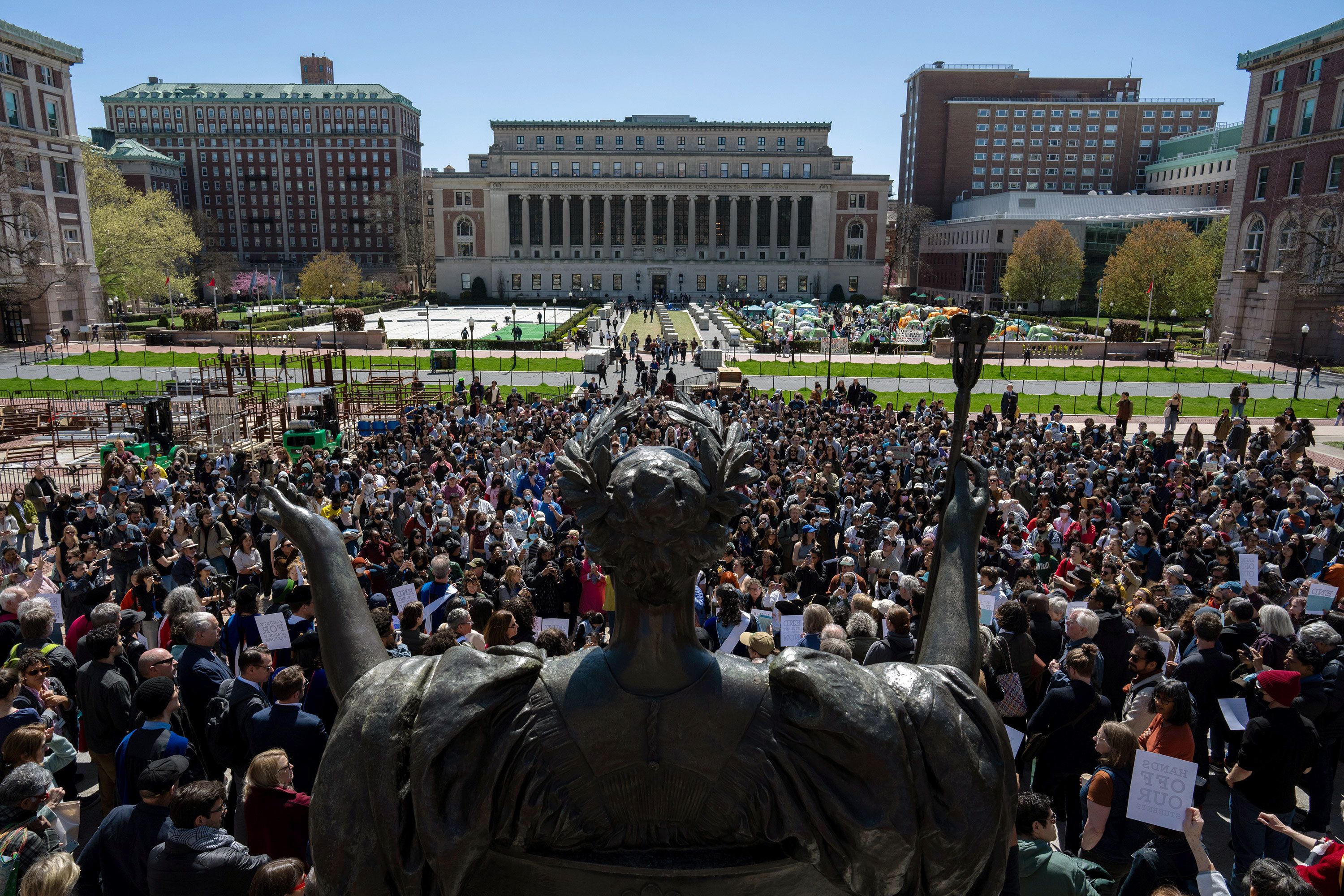Columbia University has been forced to lay off 180 staff members after the Trump administration revoked $400 million in federal funding. The cuts were a result of allegations that the university failed to address persistent harassment of Jewish students, particularly in light of pro-Palestinian protests on campus. Reuters has reported that the funding cuts come after several failed attempts by Columbia to mitigate tensions on campus. For more on how similar situations are unfolding at other universities, visit our page on campus antisemitism controversies.
Background of the Situation

Columbia University, which has been at the center of anti-Israel student protests, saw its funding cut after the Trump administration accused it of allowing antisemitism to thrive on campus. The university had previously made attempts to address these issues by implementing several changes, such as banning masks during protests and enhancing security, but these efforts were deemed insufficient by the administration. For more about how the university has handled these tensions, you can refer to NPR’s coverage on the protests at Columbia.
The Impact of the Funding Cuts
The $400 million in lost federal funding has resulted in the termination of 180 staff members who were working on grants directly impacted by the cuts. This includes a wide range of research and healthcare initiatives, with the university citing a significant financial strain as the reason for the layoffs. For a more detailed breakdown of the cuts, read CNN’s report on Columbia’s financial strain or visit our detailed analysis on layoffs in universities.
Columbia’s Response

In response to the loss of funding, Columbia officials have pledged to continue lobbying for the restoration of these funds, although they have not provided a timeline for when the grants might be reinstated. Despite agreeing to some of the Trump administration’s demands, such as appointing officials to review Middle Eastern studies departments and strengthening security, the cuts remain in place. You can stay updated on Columbia’s fight for funding by following Columbia University’s official news updates or reading more about the impact of university funding policies.
Broader Implications

The cuts to Columbia University are part of a broader shift in how U.S. universities are being pressured to address antisemitism. Harvard University, another top U.S. institution, has also faced similar threats of funding cuts and has responded by suing the administration to block these actions. For further context, check out this Politico article on Harvard’s lawsuit against the Trump administration.
Conclusion
The cuts to Columbia University’s funding serve as a stark reminder of the intense political and ideological pressures facing universities today. The situation underscores the ongoing tension between freedom of speech on campuses and the government’s stance on issues like antisemitism. You can learn more about similar issues at other campuses by visiting our [related coverage](https://www.example.com/campus-antisemitism-controversies).
As the situation unfolds, universities across the U.S. will likely face increasing scrutiny on how they handle sensitive political movements and the safety of all students.
Read more about the ongoing conflict between pro-Palestinian and pro-Israel movements on campuses
Explore how the Trump administration has impacted US universities’ funding









